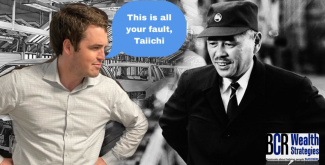
Want to blame someone for our current supply chain problems?
Blame Toyota, or more specifically, blame Taiichi Ohno.
I’m trying to be funny, but let me explain, Taiichi Ohno is considered the father of Toyota Production Systems which, through evolution, became the concept we know today as Just in Time Manufacturing. His focus was to create a manufacturing workflow that reduced inventory and focused on a lean supply chain. It’s hard to determine when exactly this started but it was some time after World War II. Japan lacked the cash to store large inventory and experienced high unemployment. To survive they had to lean out their processes. This lowered cost and later made companies like Toyota and eventually companies around the world more profitable. Fast forward 70 or so years and we have complex networks of manufacturers, distributers, and shippers that allow for on demand service, 2-day shipping, and highly customized made to order products. This style of manufacturing reduces waste and is wildly productive and profitable.
The system works great until you don’t have supply when you need it. Without inventory, something like COVID comes along, takes a few key people out of the workforce, takes down a few key factories, a few key shippers... you get the point and now our complex spider web of networks is broken in every direction. You click the Buy Now button and instead of receiving your dishwasher in the normal 2 weeks you get an email that says 3 months! I’m speaking from experience! Have you tried to shop for appliances lately?
During this pandemic we have seen surprise shortages from toilet paper to lumber and now semiconductor chips. Everything from your electric toothbrush, your car, to the flashing Christmas tree lights has a chip in it. Speaking of Christmas, have you started shopping yet? I’m not saying this supply chain disruption is going to last forever, but it’s going to take a while to recover. The short-term problems will ease and hopefully we, as a society, develop a long-term solution.
With a long-term focus, as you should strive for in investing and planning, there are some things you can do to have an impact on the supply chain. Start with focusing on your health. It may not be visible to you, but what impact does your absence, due to illness, have on someone else? Potentially create extra work for your coworker, family, or your client and their family. What about your budget? When something suddenly cost more than it used to, are you prepared to pay? Does the increase in cost affect your long-term goals? It might be a good time to review your expenses and ensure you are prepared for the holiday season and any future shortages we might be faced with.

